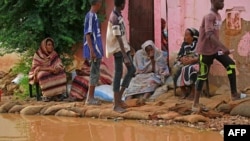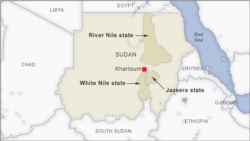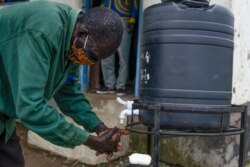The U.N. refugee agency says heavy flooding in Sudan is putting the lives of tens of thousands of refugees, internally displaced people, and host communities at increased risk at a time when the coronavirus pandemic is spreading.
An estimated 125,000 refugees and internally displaced people are affected by Sudan’s worst flooding in a century. The U.N. refugee agency says the situation is particularly bad in the regions of East Sudan, White Nile, Darfur and Khartoum.
The agency says shelters have been washed away in the torrential rains, infrastructure has been destroyed and latrines have collapsed, heightening the risk of disease. Officials say roads have become too muddy for traffic to pass through, making it impossible to deliver emergency aid to many in desperate need.
UNHCR spokeswoman Shabia Mantoo says the refugees and displaced people are in dire need of shelter and other relief. She says some have lost all their possessions and face the prospect of starting over.
“Hygiene and sanitary levels have plummeted due to flooded latrines and contaminated water supplies, preventing people from exercising necessary COVID prevention measures such as regular hand washing. Some health facilities have been damaged, hampering their ability to treat patients should the transmission of COVID or other viruses or disease increase,” she said.
Mantoo notes many affected by the flooding have previously been displaced by conflict and have been unable to earn a living because of COVID-19 restrictions. She says they are living on a knife’s edge and struggling to meet their most basic needs. COVID-19 is the disease caused by the coronavirus.
The World Health Organization says Sudan has more than 13,000 coronavirus infections, including 833 deaths.
The UNHCR and other aid agencies are working with the Sudanese government to provide emergency aid wherever possible to refugees, other displaced people and host communities throughout the country.
Officials say the devastation caused by this historic flooding will be long-lasting and people will require support for some time. The UNHCR says it is short of cash and is appealing to international donors for support.
The agency notes it has received just 38 percent of the $275 million it needs for its humanitarian operation until the end of the year.









